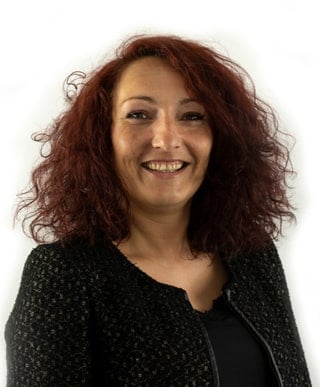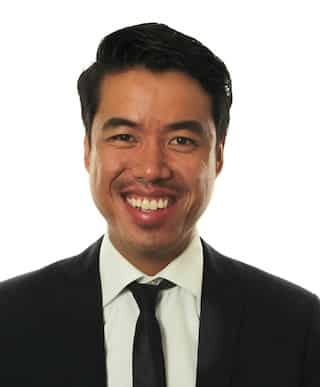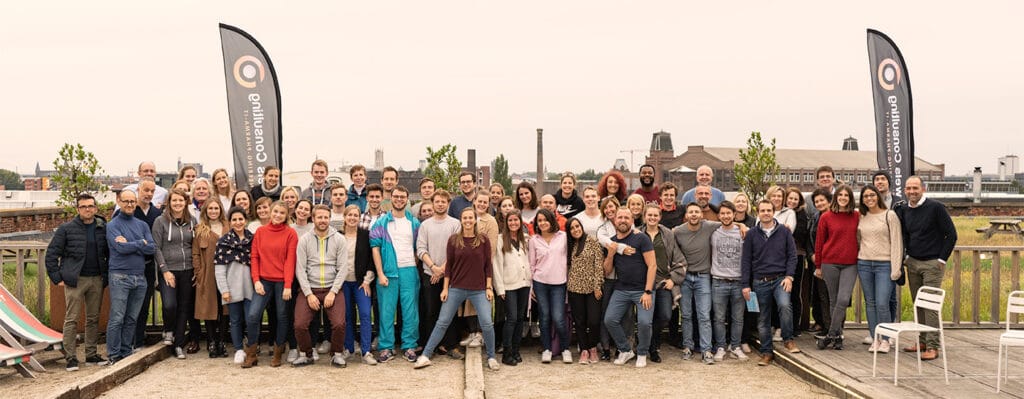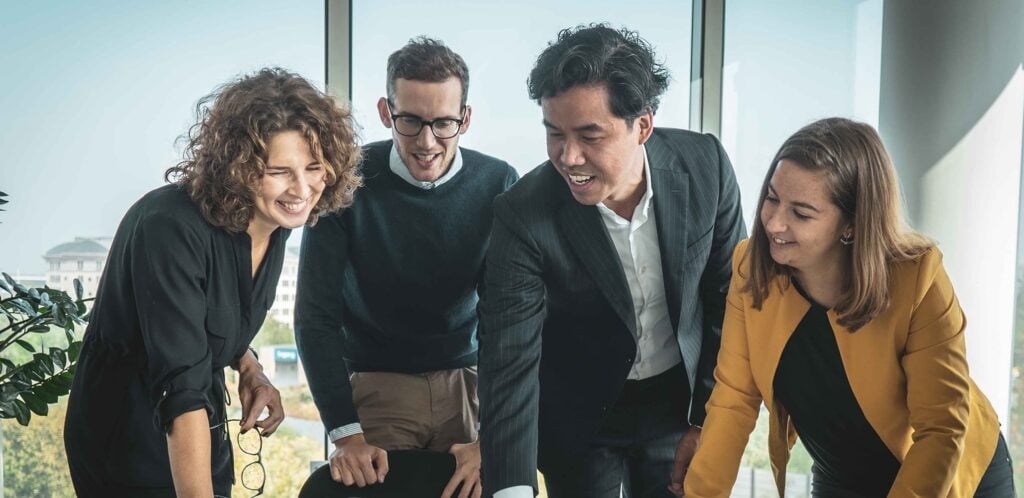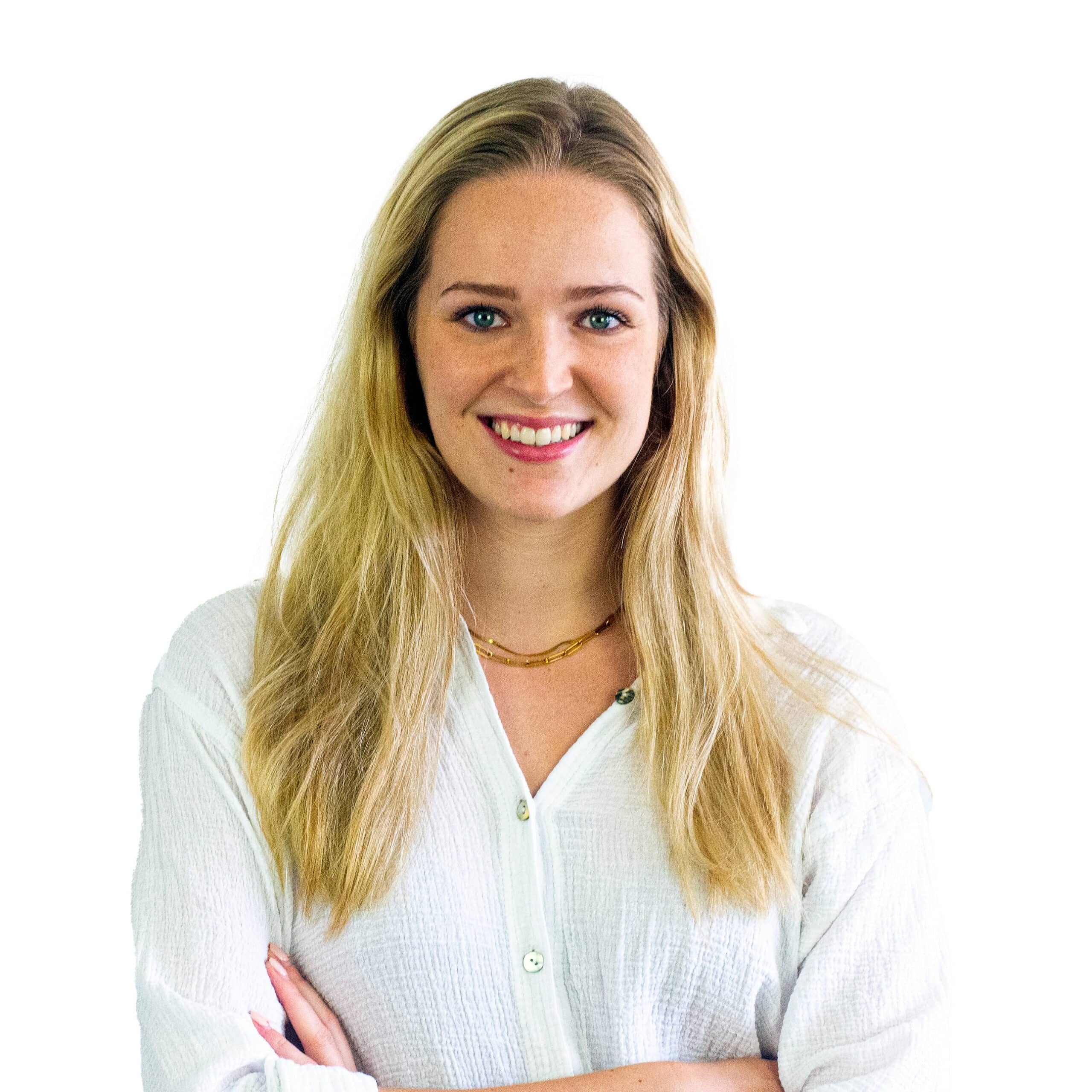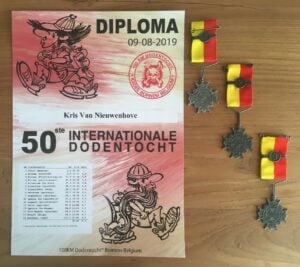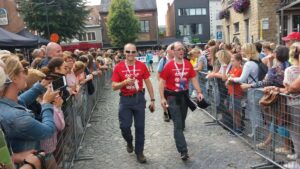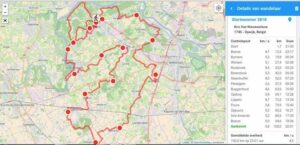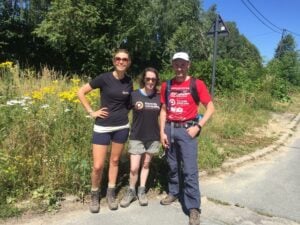Pauwels people
Working as a Remediation Consultant: Sophie Clauwers
In our series Pauwels People, our colleagues introduce themselves and talk about their projects and experiences. Today, we are going to get acquainted with Sofie Clauwers, Remediation Consultant at Pauwels Consulting.
Sofie, can you tell us a little bit about yourself?
Sofie: Of course! My name is Sofie Clauwers and I am forty years old. It was eleven years ago that I married my darling husband Stephan. Three and a half years ago, we decided to leave the vicinity of Brussels and relocate to the Antwerp Campine, where we enjoy nature and the quietness.
What do you do in your free time?
Sofie: I find cooking and a healthy lifestyle challenging and interesting. This is also one of the reasons why I visit the gym regularly. Stephan and I enjoy walking and cycling if the weather permits this. Every now and then, we also try to discover a small area of our world, to enjoy nature as well as culture.
What studies did you complete and where did you graduate?
Sofie: I studied pharmaceutical and biological techniques at the Erasmus University College Brussels.
Where have you been working?
Sofie: I worked at the KU Leuven for twelve years, as well as at the Vlaams Centrum voor Bewaring van Tuinbouwproducten (VCBT, Flanders Centre of Postharvest Technology). At the KUL, I worked in the laboratory and assisted doctoral students with implementing their practical work. My tasks involved the development of HPLC methods as the implementation of routine laboratory tests. As such, I taught laboratory techniques to many international students. At the VCBT, we mainly researched how to extend the preservation of Belgian fruit and vegetables and how to avoid diseases.
How did you get in touch with Pauwels Consulting?
Sofie: My job at the KUL/VCBT was no longer as challenging as I wanted it to be. I had no career opportunities and there were no other jobs or tasks available for me. That’s why I decided to post my CV online and to look for a new challenging position. Only shortly after I was contacted by a Pauwels Consulting recruiter.
“My conversation with the Pauwels Consulting recruiter was surprising, to the point and professional.”
What was your first impression?
Sofie: It was my very first contact with a consultancy company. I must admit, I did not know much about consulting at that time, except that consultants were often recruited for short projects in the IT world. My conversation with the Pauwels Consulting recruiter was surprising, to the point and professional.
That telephone conversation was the start of my next career. (Smiles.) I have been working at Pauwels Consulting as a Remediation Consultant since 2011. It goes without saying that a lot has changed since then. Pauwels Consulting was already a fast-growing company, but through the years it has become much larger.
Could you tell us more about your current projects?
Sofie: My first assignment at Pauwels Consulting was at a quality laboratory of a large pharmaceutical company. I participated in checking the quality of the medicines which were to be introduced on the market. My next assignment was in 2013, at a different large pharmaceutical company. It was my task to properly go through the ‘compendial updates’. After all, for the analysis of most raw materials and medicines, ‘pharmacopoeias’, official government manuals with directions, describe how and which quality tests must be implemented.
These tests can be updated if a different method, device or reference material must be used. If such updates had an impact on our international products or techniques, I would inform the relevant persons as well. I also had the opportunity to participate in adjusting or creating internal specifications. After one year, the regulations and company structure were changed somewhat for external employees. This resulted in a new assignment for me: a remediation project. I have been working as a team leader on this project for two years now, together with two other colleagues.
What is the objective of this remediation project?
Sofie: The objective of the remediation project is to ensure that all international sites of the company deliver the exact same quality and that the products are also subjected to the same quality tests. Moreover, each country has its own guidelines and requirements which we must include. We recently completed our mission in a number of large Asian countries and just started a mission in South America.
What are your responsibilities during the remediation project?
Sofie: Each product has a ‘technical owner’. My two colleagues and I assist this owner in the remediation project. We meet and discuss which actions must be taken. At a later time, these actions will be described in a ‘change of control’ document. Each site and each external partner who is only slightly involved must submit an assessment, including the required activities to implement the changes, on a laboratory level as well as on a registration level.
Once the ‘change of control’ document is completed and approved, we follow up on the activities. This could involve having new methods developed, adjusting specifications, transferring methods and ensuring that the other sites qualify for these new methods up to and including ensuring that certain documents are created and registered… We also issue reports regularly. At that time, we discuss possible issues and explore how these could be solved.
What is challenging about this type of projects?
Sofie: I find it challenging and interesting to come into contact with so many different cultures. Making arrangements, specifically with regard to the timelines, could prove to be quite a challenge for example. We were even given training about holding meetings with other cultures and on cultural differences.
In the meantime, new regulations have again been introduced to my current principal. Because of these new regulations, I work on-site only one single day per week, which is applicable since the month of July.
Have you learned interesting things up to now at your current principal?
Sofie: At first instance, I was quite amazed about how large and spectacular my principal is and about the many differences between the various sites. Also, on a registration level, there are a lot of guidelines that differ per country. This makes everything even more complex. But, in itself, this is exactly what makes it a very interesting challenge.
“I find it challenging and interesting to come into contact with so many different cultures. Making arrangements, specifically with regard to the timelines, could prove to be quite a challenge for example.”
What would you like to do once this project is completed? What are your ambitions for the future?
Sofie: I trust I can work on this project for the coming years. What I would like to do after this project? Actually, the thought never even crossed my mind. I am very open-minded and always eager to learn more. However, I would like to continue in an administrative job and would not prefer to return to the laboratory.
In fact, I would just like an interesting job in which I can actually contribute. My husband could also be retiring in five years’ time and we are thinking about spending the winters in a warmer climate.
Is there any other wisdom you wish to share or perhaps an inspiring citation?
Sofie: Since I turned forty last month and lost my mother two years ago, I feel it is even more important to consciously enjoy, together with my husband. Don’t get me wrong, I love my job, but I also love to enjoy life to the fullest after my working hours! My message to others would be: consciously enjoy what you have as much as possible.
A beautiful conclusion, Sofie. Thank you for the interview and here’s wishing you success with your projects!

